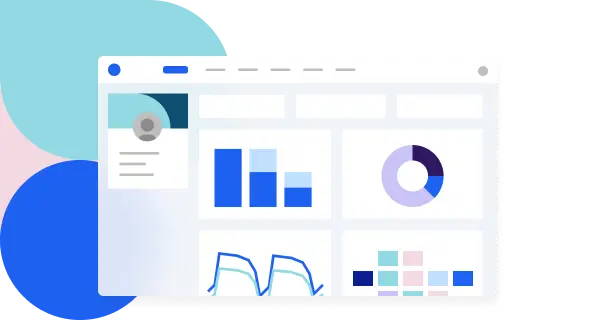How to promote your virtual event: 10 Proven event marketing tactics
In this blog, we’ll explore strategies to promote your virtual events effectively. From A/B testing your email campaigns to leveraging video content and influencer marketing, there are many creative ways to engage your audience and increase attendance. Personalizing event pages for different participant types, offering sneak peeks, and using gamification can also make your event more appealing.

1. Run A/B Testing Marketing Campaigns
Email marketing is the bread and butter of any successful online marketing campaign, as they can help your company choose the setting for your next event. Start with an A/B subject line test and test a handful of them to determine the best one based on opening rates. Include a form so that the receiving delegates can make recommendations on what they expect of your upcoming event. Don’t let your ignorance fool you. Based on this article published by WordStream, rearranging the order of some words in your subject line can increase opening rates by up to 50%.
You can also test other aspects of any email, such as the location of various links or forms; even the sending time can have a large impact. Start by trying out different things so that all future events have a potential to maximize the amount of visitors.
2. Personalize Dedicated Event Pages Per Participant Type
This should go without saying, but many companies fail to take this step. It is a must to create your own event page and spend time on it. This does not mean that you need to spend hours adapting and optimizing everything on it. There are some simple steps you can follow to create a well-performing event page.
There must be a specific section that focuses on each of your target groups. Different target groups respond to different segments. For example, suppose you organize a virtual event to promote your company’s latest software product. You want to impress both new and returning customers. Maybe you offer existing customers a free trial after they register for the event and offer a discount to new customers.
Make sure your general event page links to other, more segmented information pages on your website. Different keywords, graphics, forms. Anything tailored to your specific audience segments can have a huge impact on the exhibition’s attendance. You might even try to include other types of media, which brings us to our next tactic.
3. Leverage The Power Of Video
If you say that you haven’t scrolled through an article checking out only the bullet points, you are lying to yourself. Indeed, information can sometimes be overwhelming, especially if it is not presented in an interesting and compelling way. This is where video marketing comes into play.
Digital content is the most appealing and effective way to promote any of your future events. According to Forbes, people remember up to 95% of the information presented in video form. Besides, the click-through rates are over 90% and videos are shared hundreds of times more often than texts and links together.
Best of all, videos are hardly any more expensive than blog posts to create. If done right, they can even save you money. There are several online sites and software that can help you create amazing professional-looking videos for a small fee. Biteable and Animaker are two of the best ones out there with the latter also offering a free plan.
4. Weaver Storytelling Into Your Concept
Again, this tactic is most effective when combined with the previous one. Whether you choose text or video content to promote your event, wavering storytelling into your marketing will produce incredible results.
Be sure to consider this regardless of the type of media you go with. Give your event a background, a story that tells why the event came to life and why people should care about it. How does it resonate to their personal experiences, goals and expectations to be considered a positive personal return on investment?
This fits in well with virtual experiences that span over several days. Breaking up your event in sequels, makes your story understandable and easy to digest. This brings a greater chance that it will be widely distributed through social media, leading to an exponential increase in virtual event traction.
5. Influencers Are Everywhere
Influencers love media and media love influencers. There are people out there who can review your event and promote it before it goes live. Research the personal influence of your sponsors or speakers, and even potential attendees, to see who is most valuable in helping you with that.
Anyone can be influenced, which makes every listener a possible attendee. Start sending emails, team up with other companies, start a hashtag on Twitter. Find out what works best for you and put it into practice. Whatever works best as a strategy can be documented and implemented for all future virtual events.
6. Value Your Business Partners
As mentioned, any kind of traction can help you promote your virtual event. Let us take a look at one of your partners. Suppose they run their own virtual event campaign. Chances are that they will send out emails a few weeks or months before it takes place.
They are business partners for a reason, so help each other out. Include an advertisement for their event in your newsletter, to manifest the logical next step for them to do the same. Share social media hashtags, blog entries, and infomercials, anything you can do to help them hit their goals and strengthen your relationship as a partner. You could even supply them with some tickets for your own events, to distribute to their internal teams or customers.
As the American author Helen Keller once said: “Alone we can do so little; together we can do so much”. Every company should live by this rule. Help out your partners and sponsors, and you shall receive.
7. Offer A Sneak Peek
Who would watch a movie without having seen the trailer first? If you’re lucky, about 5-10% of the total audience. The same principle applies to any other form of event. In order fir your event to entice your audience, you need to create a buzz around it.
Especially for virtual formats, you might want to give your audience an actual preview of what they can expect on the day of the event. Create a small video with footage of what people can expect to see at the event, to convince them it’s worth investing their time/money in it. Another smart way of proving value is by sharing actual clips and testimonials of previous virtual events.
8. Conduct Proper Keyword Research
Search Engine Optimization has been around since the early days of the Internet, and even though it was not so popular back then, it certainly is crucial today. Utilize websites like SEMrush or Moz to find out what keywords and key phrases your competition uses. Try to select a few good ones with medium to low competition and include them in your future newsletter and blog posts.
Check out the auto-complete suggestions in Google to get more ideas about what people within your niche are searching for. This will help your company’s website appear higher in search engine results thus increasing potential attendance of your next virtual event.
9. Create Goodwill With Give-Aways And Freebies
Once you announce your virtual event, be sure to include some freebies the audience receives after registering, or when the event is over. This can be anything from an extended free trial of your company’s latest product, or a small eBook on a related topic. With incentives like this, your potential attendees have guaranteed added value before even looking at the content of the event. Make sure to schedule enough time to answer all questions from your virtual audience after the virtual event comes to its end.
Making them feel heard builds trust within your community and improves the relationship between the company and its customers. This might sound like a small thing, but one of the most valued freebies is advice from a valued industry professional. Keep this in mind, as it’s easy to implement and has a huge impact on how your event is perceived.
10. Gamification Marketing
This is a cool marketing tactic that you can use especially when organizing a virtual event. Remember that this is completely optional, but it is certainly entertaining and the best thing you can do to create traction is to show that your event is anything but boring.
Set up a virtual scavenger hunt, or small trivia tournament based on the information distributed during the event. The winning participants can score points, credits, . This will not only excite your potential audience but also place them in an interactive state of mind prior to your virtual event.
More Event Management












